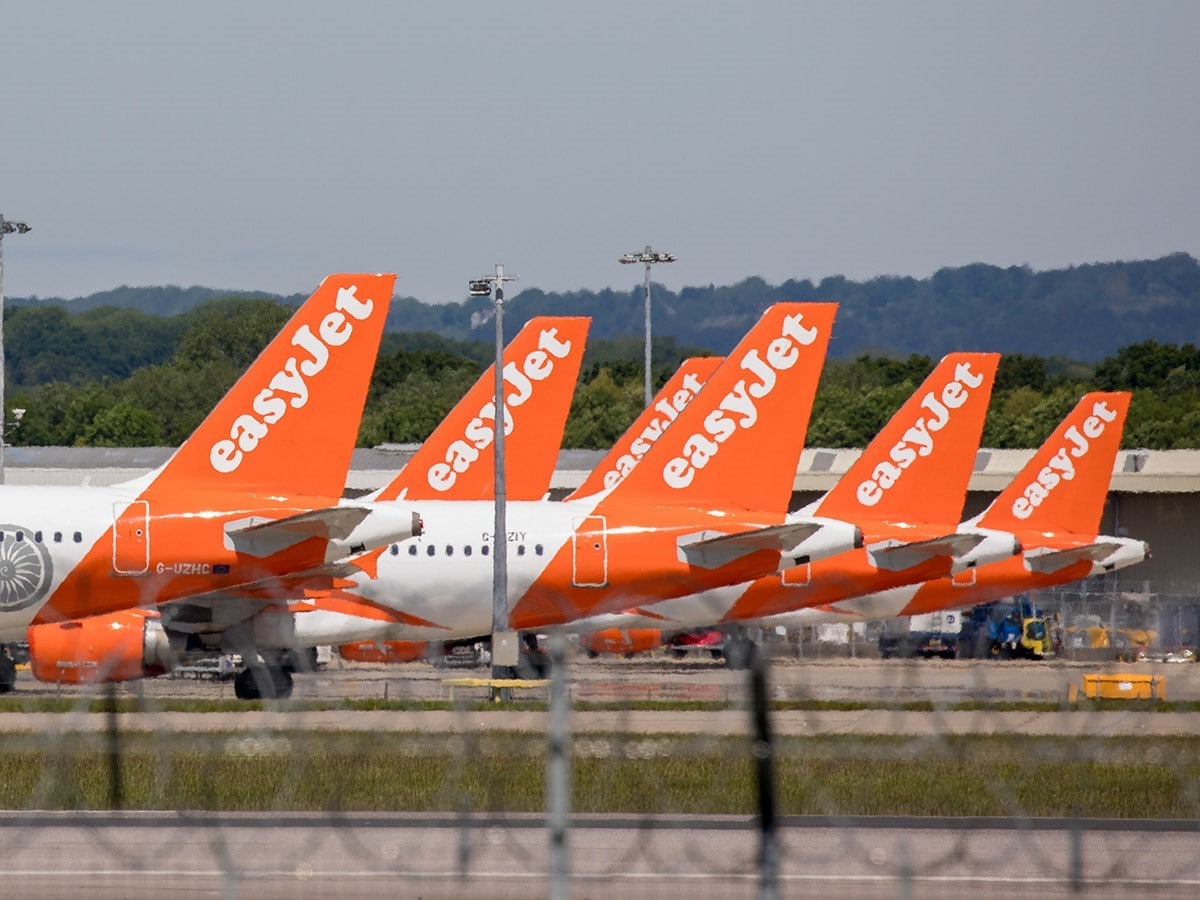EasyJet’s [EZJ.L] share price has nosedived this year, losing over 63.9% since January to drop to 539.60p on 22 September.
EasyJet’s share price has suffered as a result of the closure of air traffic space during the coronavirus pandemic, and the continued drop-off in demand from nervous or quarantined business and leisure passengers even after lockdowns were relaxed.
EasyJet’s share price hit a low of 475p on 3 April as investors took fright about both the airline sector and wider market prospects.
The journey since has not been an easy one for EasyJet’s share price.
Staging a recovery for EasyJet’s share price
EasyJet predicted in May that passenger demand would not return to pre-pandemic levels until 2023, citing additional concerns about the huge costs the full grounding of its fleet would rack up.
EasyJet’s share price recovered to 891.20p on 5 June, amidst hopes that a reduction in virus cases and an easing of lockdown measures would see a return to the skies.
From the start of July, it began operating a reduced service for UK passengers seeking breaks in the sun along safe “travel corridors”.
The airline also took steps to shore up its finances in June, raising £419m in a share placing. The company said this would enable it to deal with protracted recovery scenarios – in short, if there is a second wave of the virus and further lockdowns, which seems increasingly likely.
To further boost its finances, it set out plans to axe around 4,500 jobs and close bases, including those at Southend and Newcastle.
4,500
Number of EasyJet jobs being cut
Initially, the group hailed higher than anticipated demand for its resumed flights, announcing in early August that, having expected to operate at 30% of normal capacity, it was now ramping that up to 40%.
However, by early September the airline changed course, declaring it would now fly at slightly less than the 40% of planned capacity for the fourth quarter.
It said this was due to widening and “unpredictable” quarantine and travel restrictions from the UK government, leaving passengers frustrated. Ongoing fears that the virus is returning in larger numbers have also dampened demand.
As a result, it said that it would not be able to give earnings guidance for either this fiscal year or the next.
Johan Lundgren, CEO of EasyJet, called on the government to ease the financial burden on airlines by removing air passenger duty for at least 12 months, as well as alleviating air traffic control charges.
| Market Cap | £2.407bn |
| PE ratio (TTM) | 8.61 |
| EPS (TTM) | 61.20 |
| Quarterly Revenue Growth (YoY) | 1.7% |
EasyJet share price vitals, Yahoo Finance, 23 September 2020
Dented demand
According to MarketScreener, the consensus rating on EasyJet’s share price amongst analysts is Outperform, with an average target price of 763.80p.
Credit Suisse also holds an Outperform rating on the stock but, following the recent capacity announcement, reduced its target price from 855p to 752p.
The Swiss bank justified its reduction with the “persistent revenue vulnerability” which would leave profits lower than expectations in 2020 and 2021.
“Softer demand is not greatly surprising given the fluidity of the current situation,” said Neil Glynn, research analyst with Credit Suisse. “This setback is a reminder of the challenges for airlines in planning over the coming months.”
“Softer demand is not greatly surprising given the fluidity of the current situation. This setback is a reminder of the challenges for airlines in planning over the coming months” - Neil Glynn, research analyst with Credit Suisse
Sophie Lund-Yates, equity analyst at Hargreaves Lansdown, agreed that EasyJet, alongside other airlines, are in a “tough spot”.
“There is very little cash coming in and the group still has large costs to pay,” she said. “It burnt through £774m in the third quarter, which is less than the £1bn expected, but is still unsustainable over a prolonged period. The current crisis will leave EasyJet badly scarred. It is doing a lot of the right things to protect [its] long-term interests, but the EasyJet we'll be looking at once its self-help measures are complete is going to be a very different beast.”
EasyJet’s share price could still cope with rising financial pressures, however.
“[EasyJet] has raised over £2.4bn since the pandemic started, through a mix of debt, aircraft sales, and new equity,” Roland Head wrote in The Motley Fool. “This will probably be enough to allow the airline to get through this difficult period. I think there’s a good chance EasyJet’s share price will be back at 1,000p within five years.”
“This will probably be enough to allow the airline to get through this difficult period. I think there’s a good chance EasyJet’s share price will be back at 1,000p within five years” - Roland Head
When the pandemic ends, holidaymakers and business travellers will likely return to the skies.
EasyJet’s share price could be one of the main beneficiaries given the airline’s low-cost model and strong branding. A return to previous highs is a long way off, but there are plenty of potential upsides to this stock.
Continue reading for FREE
- Includes free newsletter updates, unsubscribe anytime. Privacy policy





